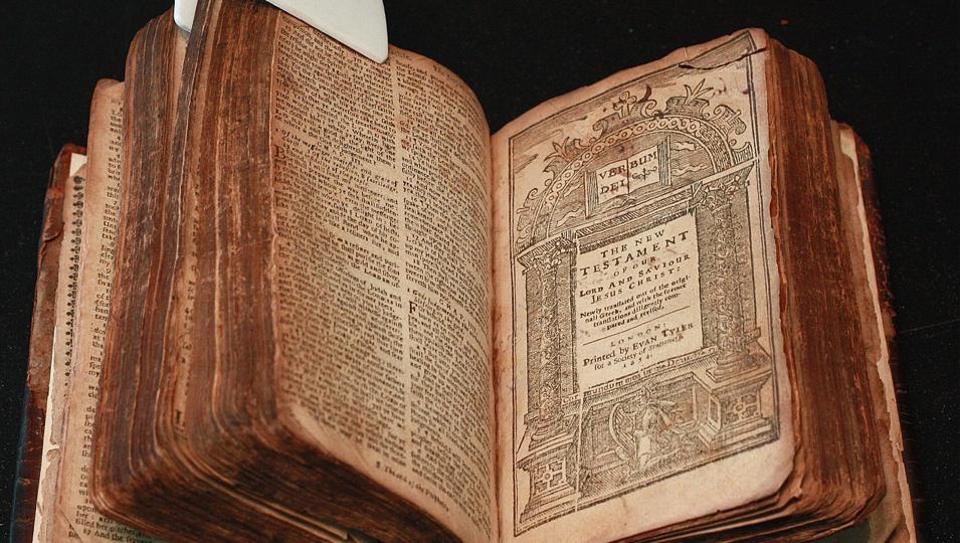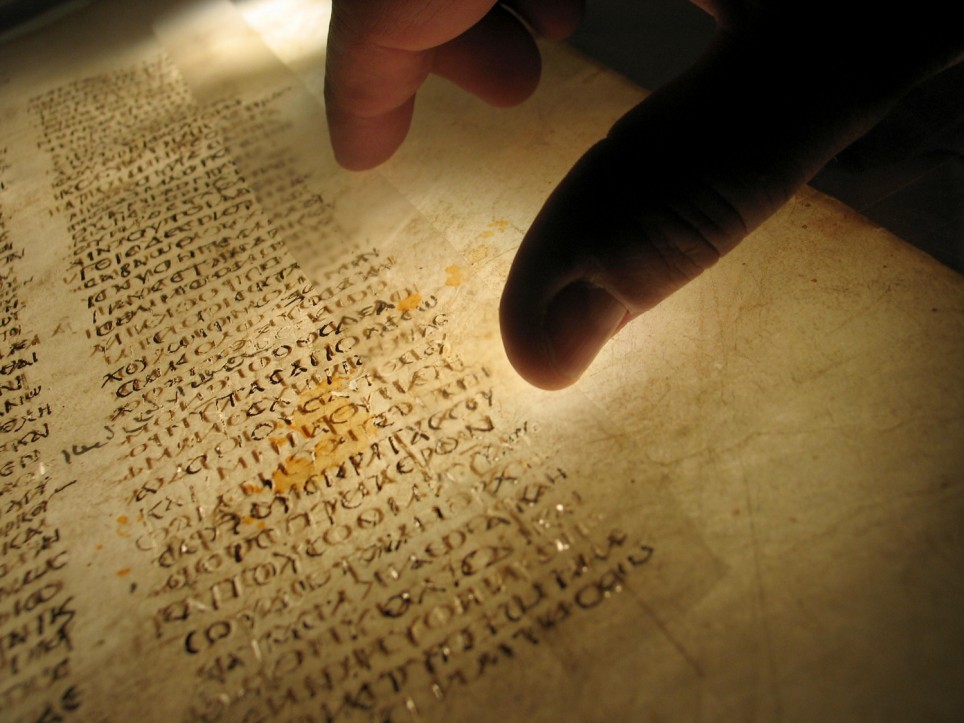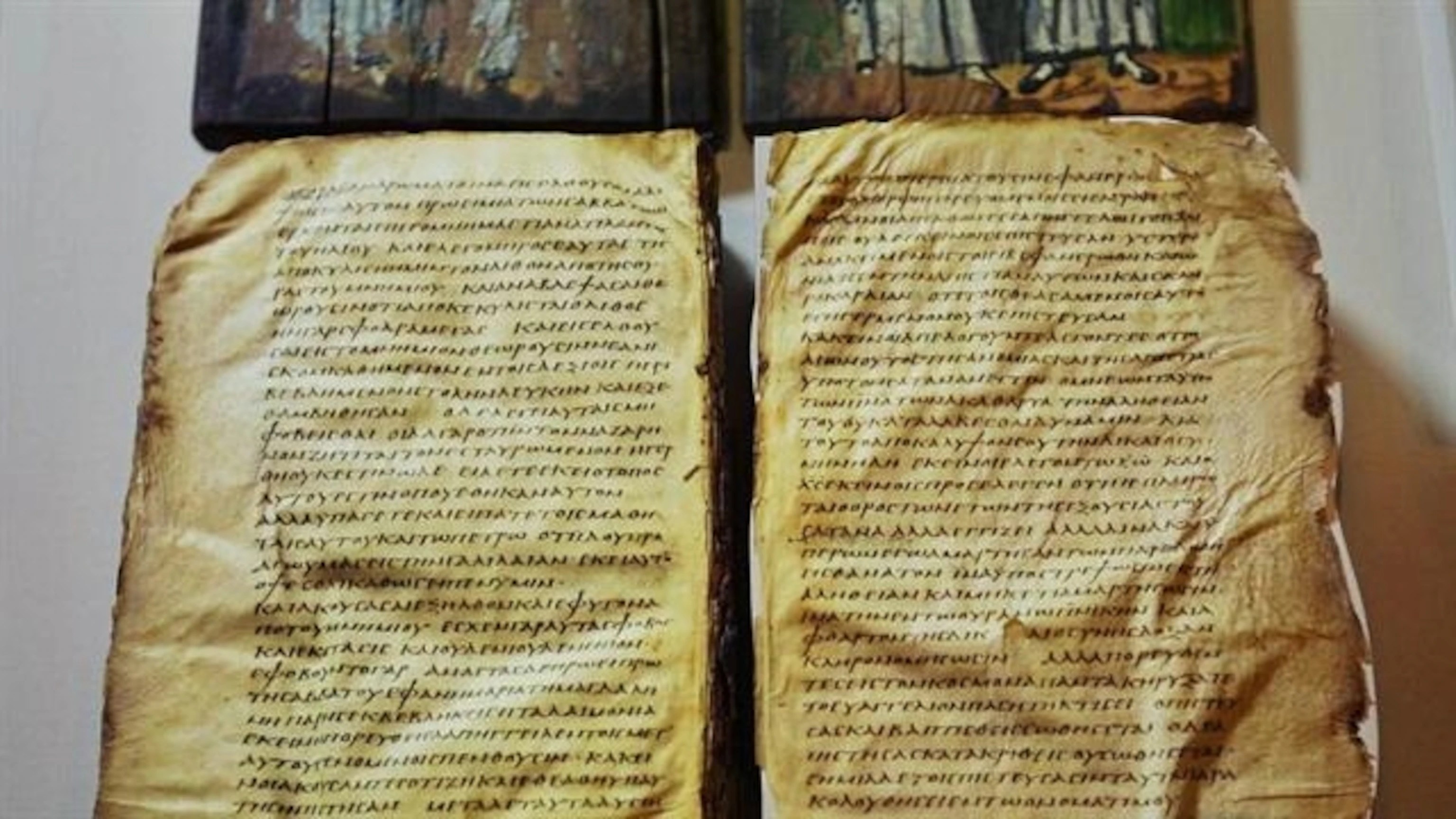The Oldest Person in the Bible
According to the Bible, the oldest person was Methuselah, who lived to be 969 years old (Genesis 5:27). This extraordinary lifespan is attributed to God's blessing and favor upon him. Methuselah's name has become synonymous with longevity and has been used in various contexts to denote extreme old age.
The biblical account of Methuselah's life provides insights into the nature of human existence and God's sovereignty over life and death. His exceptional longevity stands as a reminder of God's power to grant long life and blessings to those who walk in obedience to his ways.
In the Bible, Who Was the Oldest Person?
The Bible mentions several individuals who lived exceptionally long lives, but the oldest person is Methuselah, who lived for 969 years (Genesis 5:27). His extraordinary lifespan has fascinated and intrigued people for centuries, leading to various interpretations and discussions about its significance.
- Longevity: Methuselah's age represents the epitome of human longevity, surpassing all others mentioned in the Bible.
- Patriarch: As a patriarch in the biblical narrative, Methuselah played a significant role in the lineage leading to Noah.
- Favor of God: Methuselah's exceptional lifespan is attributed to God's favor and blessing upon him.
- Mortality: Despite his extended years, Methuselah's story also serves as a reminder of the mortality of all human beings.
- Faithfulness: Some scholars suggest that Methuselah's longevity may have been a reward for his faithfulness and obedience to God.
- Symbolism: Methuselah's name has become a symbol of extreme old age and has been used in various contexts throughout history.
These key aspects highlight the multifaceted nature of Methuselah's story and its relevance to broader themes in the Bible, such as human existence, God's sovereignty, and the ultimate destiny of all mankind.
| Name: | Methuselah |
| Lifespan: | 969 years |
| Occupation: | Patriarch |
| Known for: | Oldest person in the Bible |
Longevity
Methuselah's exceptional lifespan stands as a testament to the extraordinary nature of his existence. The Bible portrays him as the oldest individual, surpassing all others in recorded history. This remarkable longevity has captivated the imaginations of people throughout the ages, leading to various interpretations and discussions about its significance.
- Human Limitations: Methuselah's age pushes the boundaries of human longevity, highlighting the finite nature of our existence. Despite advancements in medicine and healthcare, the human lifespan remains limited, and Methuselah's case serves as a reminder of this fundamental reality.
- Divine Favor: The biblical narrative attributes Methuselah's extended years to God's favor and blessing. His exceptional longevity is seen as a manifestation of God's power to grant extended life and blessings to those who walk in obedience to his ways.
- Symbol of Endurance: Methuselah's name has become synonymous with extreme old age and has been used in various contexts throughout history. It represents the resilience and endurance of the human spirit, even in the face of the inevitable passage of time.
- Mortality and Legacy: Despite his extraordinary lifespan, Methuselah's story also serves as a reminder of the ultimate mortality of all human beings. His death, like that of all others, underscores the transient nature of life and the importance of leaving behind a legacy that extends beyond our physical existence.
In conclusion, Methuselah's exceptional longevity, as the oldest person mentioned in the Bible, provides insights into the nature of human existence, the sovereignty of God, and the enduring legacy we strive to create during our time on earth.
Patriarch
Methuselah's status as a patriarch is deeply intertwined with his exceptional longevity. The biblical narrative portrays him as a pivotal figure in the lineage leading to Noah, who would eventually play a crucial role in the salvation of humanity during the Great Flood.
- Genealogical Significance: Methuselah's position as a patriarch highlights his importance in the genealogy of the biblical narrative. He was the son of Enoch, another righteous figure known for his close relationship with God, and the father of Lamech, who became the father of Noah.
- Covenant and Promise: As a patriarch, Methuselah played a role in the unfolding of God's covenant and promises to humanity. Through his lineage, the line of faithfulness and obedience to God continued, leading to the eventual fulfillment of God's plan for salvation.
- Witness to History: Methuselah's extraordinary lifespan allowed him to witness and participate in significant events in biblical history. He lived during a time of great wickedness and corruption, yet remained faithful to God, serving as a beacon of hope and righteousness.
- Legacy and Influence: Methuselah's patriarch status extended beyond his biological descendants. His righteous living and unwavering faith influenced generations to come. His example of faithfulness and longevity left a lasting legacy, inspiring others to strive for a life pleasing to God.
In conclusion, Methuselah's role as a patriarch in the biblical narrative is inextricably linked to his exceptional longevity. His position in the lineage leading to Noah underscores his significance in God's plan for humanity, serving as a witness to history, a carrier of covenant promises, and a model of faithfulness.
Favor of God
In exploring the connection between God's favor and exceptional longevity in the biblical narrative, the case of Methuselah stands out as a prime example. Methuselah's life, marked by extraordinary duration, is often attributed to divine favor and blessing bestowed upon him by God.
- Divine Providence: Methuselah's exceptional lifespan is seen as a manifestation of God's providence and sovereignty over human life. God's favor extended to Methuselah, granting him an extended period of existence, allowing him to witness and participate in significant events in biblical history.
- Reward for Righteousness: Some biblical interpretations suggest that Methuselah's longevity may have been a reward for his faithfulness and obedience to God. His righteous living and unwavering faith may have pleased God, who chose to bless him with an extended lifespan as a sign of his favor and approval.
- Covenant and Promise: Methuselah's exceptional lifespan also played a role in the unfolding of God's covenant and promises to humanity. Through his lineage, the line of faithfulness and obedience to God continued, leading to the eventual fulfillment of God's plan for salvation and the coming of the Messiah.
In conclusion, the connection between God's favor and exceptional longevity, as exemplified in the case of Methuselah, provides insights into the nature of divine providence, rewards for righteousness, and the unfolding of God's plan for humanity.
Mortality
In examining the connection between "Mortality: Despite his extended years, Methuselah's story also serves as a reminder of the mortality of all human beings." and "in the bible who was the oldest person", a profound interplay emerges. Methuselah's exceptional longevity, while remarkable, ultimately underscores the transient nature of human existence, serving as a poignant reminder of our shared mortality.
The inclusion of Methuselah's story in the biblical narrative serves a didactic purpose, emphasizing the universality of death and the futility of clinging to the illusion of eternal life. Despite his extraordinary lifespan, Methuselah ultimately succumbed to the inexorable march of time, highlighting the inescapable reality that all human life, regardless of its duration, is finite.
This understanding carries practical significance, urging us to make the most of our time on earth and to live each day with purpose and meaning. Recognizing our mortality can inspire us to prioritize relationships, pursue our passions, and contribute positively to the world around us, leaving a lasting legacy that transcends our physical existence.
Faithfulness
In examining the connection between "Faithfulness: Some scholars suggest that Methuselah's longevity may have been a reward for his faithfulness and obedience to God." and "in the bible who was the oldest person", we delve into the realm of divine favor and its potential influence on human longevity. The biblical narrative presents Methuselah as an exemplary figure whose exceptional lifespan may have been a manifestation of God's blessings bestowed upon him for his unwavering devotion and obedience.
This concept aligns with the broader theme of faithfulness and its rewards as depicted throughout the Bible. In the Old Testament, we find numerous accounts of individuals whose faithfulness to God was accompanied by divine favor and extended years. For instance, Abraham, the father of the Israelite nation, was known for his unwavering faith and obedience to God, and he was blessed with a long and prosperous life. Similarly, Moses, the great prophet and leader, remained faithful to God's calling despite numerous challenges, and he too was granted an extended lifespan.
The connection between faithfulness and longevity in Methuselah's case serves as a reminder of the importance of living a life aligned with divine principles. While it is not always the case that faithfulness will result in exceptional longevity, the biblical narrative suggests that God values and rewards those who remain steadfast in their commitment to Him. This understanding can inspire us to lead virtuous and meaningful lives, recognizing that our actions and choices have consequences that extend beyond our earthly existence.
In conclusion, the connection between "Faithfulness: Some scholars suggest that Methuselah's longevity may have been a reward for his faithfulness and obedience to God." and "in the bible who was the oldest person" highlights the potential rewards of living a life of faith and obedience. It encourages us to cultivate a close relationship with God and to strive for righteousness in all our endeavors, recognizing that our faithfulness can have a profound impact on our lives and the lives of those around us.
Symbolism
Methuselah's name has transcended the biblical narrative to become a widely recognized symbol of extreme old age. This symbolic usage stems from his extraordinary lifespan of 969 years, as mentioned in the biblical book of Genesis. Methuselah's name has been employed in diverse contexts to represent the concept of advanced age and longevity.
One prominent example of Methuselah's name being used symbolically is in the phrase "Methuselah tree." This term refers to exceptionally old and large trees, particularly those that have survived for centuries. The use of Methuselah's name in this context highlights the tree's remarkable longevity and resilience, drawing a parallel to the biblical figure's extended lifespan.
Additionally, Methuselah's name has been used in popular culture to denote extreme old age. For instance, the expression "as old as Methuselah" is commonly employed to describe someone who is very old or elderly. This usage reinforces the symbolic association of Methuselah with advanced age and serves as a cultural reference point for expressing longevity.
Understanding the symbolic significance of Methuselah's name provides insights into the enduring legacy of the biblical narrative. Methuselah's exceptional longevity has left an indelible mark on human consciousness, making his name synonymous with extreme old age. This symbolism serves as a reminder of the human fascination with longevity and the desire to understand the limits of human existence.
Frequently Asked Questions
This section addresses common queries and misconceptions surrounding the topic of "in the bible who was the oldest person."
Question 1: Who is the oldest person mentioned in the Bible?
Answer: According to the biblical narrative, Methuselah is the oldest person mentioned, living for 969 years (Genesis 5:27).
Question 2: Why was Methuselah so long-lived?
Answer: The Bible attributes Methuselah's exceptional longevity to God's favor and blessing upon him (Genesis 5:24).
Question 3: Does Methuselah's age represent a literal lifespan?
Answer: Interpretations vary, but some scholars suggest that Methuselah's age may be symbolic or represent a different method of calculating lifespans in ancient times.
Question 4: What is the significance of Methuselah's longevity?
Answer: Methuselah's exceptional lifespan serves as a reminder of God's power and sovereignty over life and death.
Question 5: Are there any other individuals in the Bible who lived exceptionally long lives?
Answer: Yes, several other individuals, such as Noah, Abraham, and Moses, are mentioned in the Bible as having lived for extended periods.
Question 6: What lessons can we learn from Methuselah's story?
Answer: Methuselah's story underscores the transience of human life and the importance of living a purposeful and righteous existence.
These FAQs provide a deeper understanding of the topic and address common misconceptions. By exploring these questions, we gain a more comprehensive perspective on the biblical narrative and its insights into human existence and mortality.
Next, let's delve into the broader context and significance of Methuselah's story within the biblical narrative.
Tips on Interpreting Methuselah's Longevity
Exploring the topic of "in the bible who was the oldest person" leads us to consider the exceptional longevity of Methuselah. Interpreting this biblical narrative requires a balanced approach that considers both the literal and symbolic aspects of the account.
Tip 1: Contextual Understanding
Place Methuselah's story within the broader context of the biblical narrative. Examine the surrounding genealogies and historical events to gain insights into the significance of his longevity in the overall scheme of the Bible.
Tip 2: Cultural and Historical Considerations
Recognize that the Bible was written in a specific cultural and historical context. Consider the ancient understanding of time and lifespan, as well as the literary devices employed in the text.
Tip 3: Literal or Symbolic Interpretation
Consider both literal and symbolic interpretations of Methuselah's age. The number 969 may hold symbolic or numerical significance that extends beyond a literal lifespan.
Tip 4: Theological Implications
Explore the theological implications of Methuselah's longevity. What does his exceptional lifespan reveal about God's sovereignty, human mortality, and the nature of time?
Tip 5: Lessons for Today
Draw practical lessons from Methuselah's story. Consider how his longevity can inspire us to live purposeful and meaningful lives, even in the face of our own mortality.
Summary
By employing these tips, we can gain a deeper understanding of the biblical account of Methuselah's longevity. This understanding allows us to appreciate the nuances of the narrative, its cultural and historical context, and its ongoing relevance for our lives today.
Conclusion
Our exploration of "in the bible who was the oldest person" has led us through a journey of biblical history, cultural context, and theological implications. Methuselah's exceptional longevity serves as a poignant reminder of the transience of human life and the sovereignty of God over time and mortality.
As we reflect on Methuselah's story, let us be inspired to live our own lives with purpose and meaning, recognizing that our true legacy lies not in the number of years we live, but in the impact we make on the world and the hearts we touch along the way. May Methuselah's longevity challenge us to embrace the fragility of life and to strive for a life that transcends the boundaries of time.
I'm So Proud Of My Awesome Son | Parenting Journey
Milly Shapiro Movies And TV Shows: A Comprehensive Guide To Her Notable Appearances
Weekend Humor: Hilarious Jokes To Brighten Your Day

Oldest Latin Bible to return to UK after over 1,300 years World News

World's oldest Bible goes online 1,600 years after it was penned on

World's Third Oldest Bible Displayed at Smithsonian
ncG1vNJzZmialaC8b67LqJlnm5%2Bnsm%2FDyKebqK%2BjY7umwI6nnLCrX567bsDHnmSboZKhsm7Dx6hksJmjYsGpsYyoo52do6l6sbHRrKanZpipuq0%3D